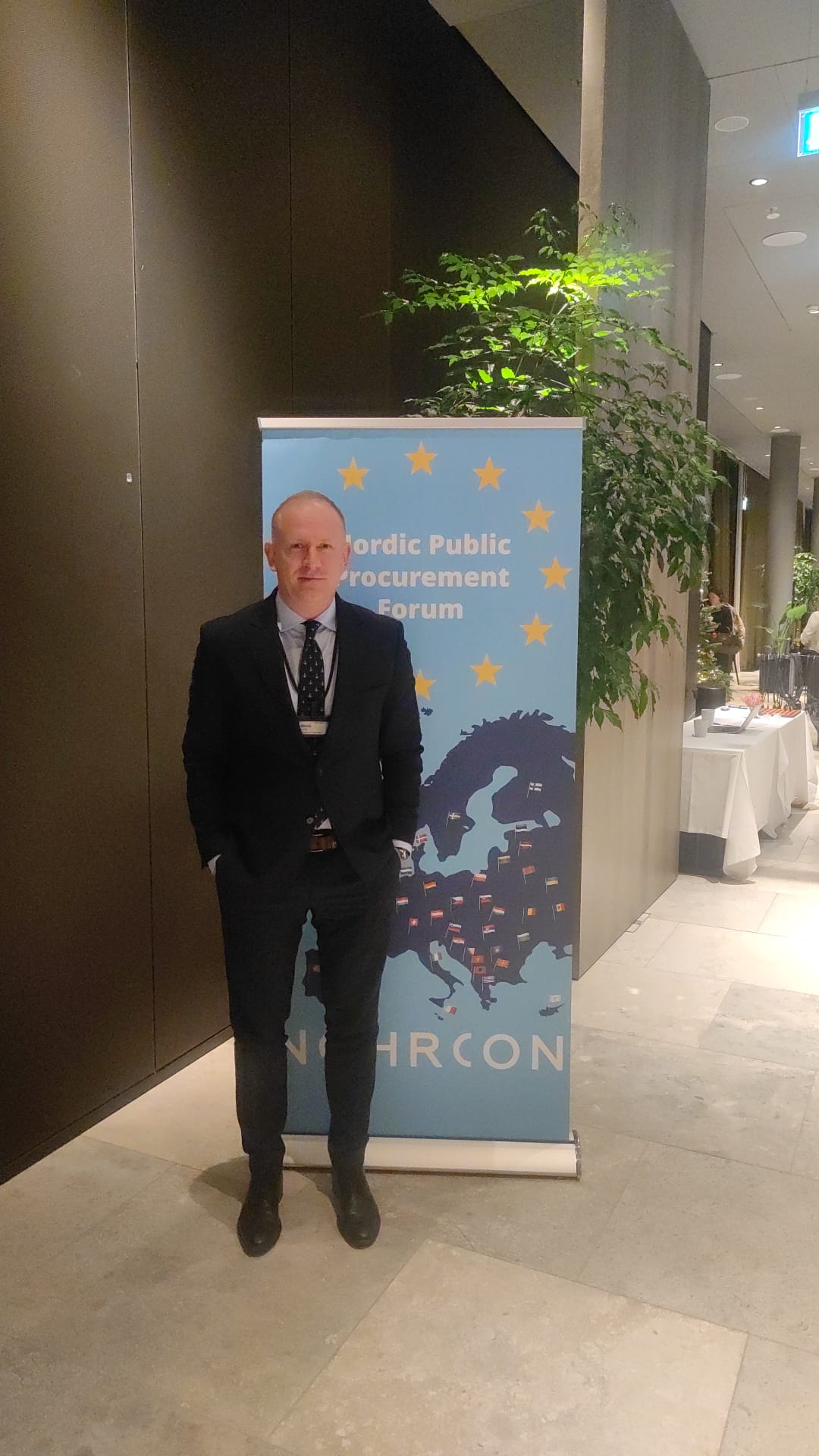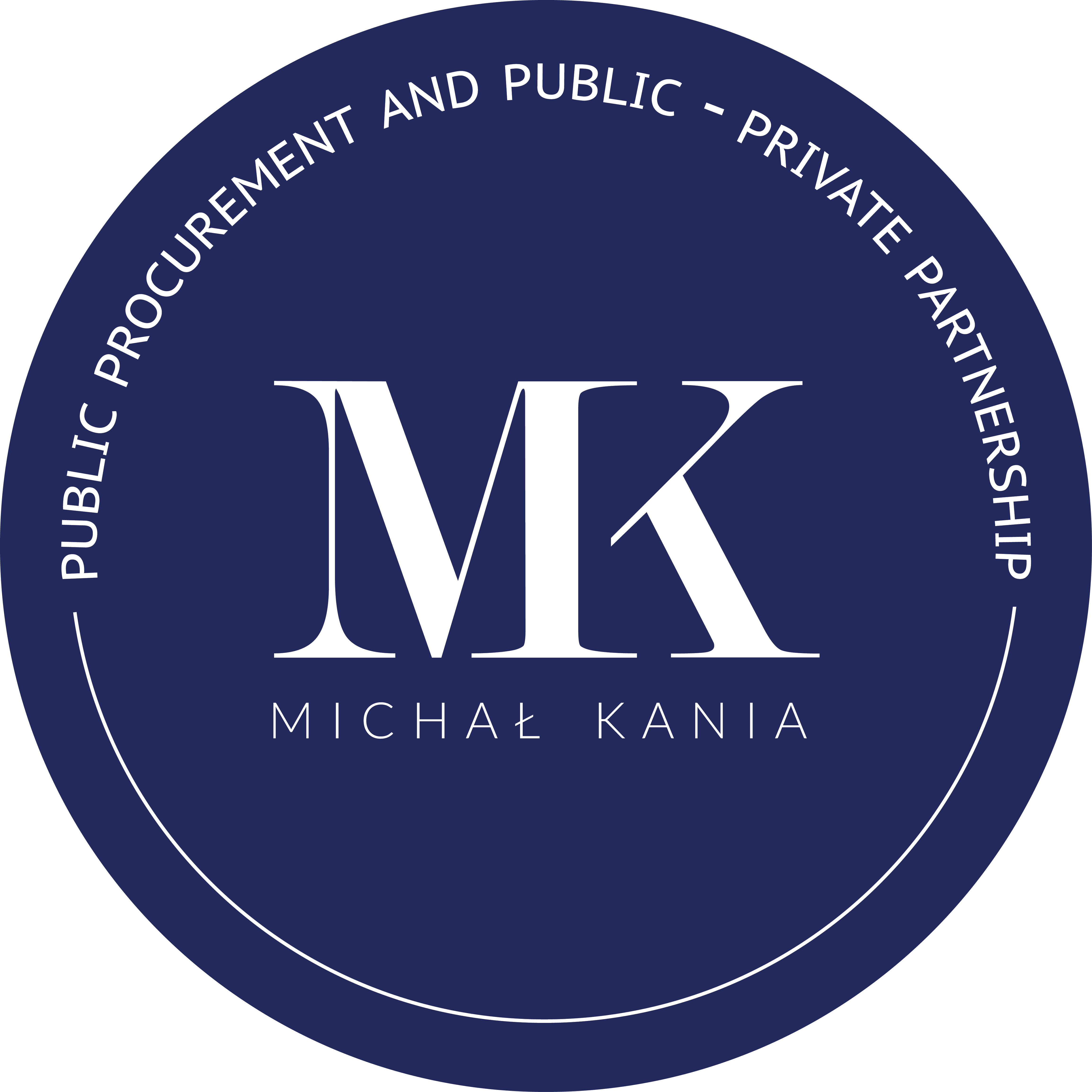5th International Conference on Public Procurement Regulation and Policy in Africa. Stellenbosch, SA

Together with the Postdoctoral researcher Ezgi Uysal from University of Copenhagen I had the chance to present a paper titled "The Intersections of Public Procurement and Contract Law" during the 5th International Conference on Public Procurement Regulation & Policy in Africa, organized by the African Procurement Law Unit. The conference, under the direction of Professors Geo Quinot and Sope Williams, took place in Stellenbosch (South Africa) between 12 and 13 September and brought together representatives of the public procurement community from many African countries. In our presentation we introduced the results of the research conducted under the supervision of Professor Marta Andhov as part of the Purple project, which concerns complex relationships between public procurement law and contract law. In the first part of the presentation, we discussed the forthcoming book, "Public Procurement and Contract Law: Exploring Interactions, Defining Boundaries." The book, edited by Marta Andhov, Michał Kania, and Sylvie Cecile Cavaleri, is scheduled for publication in early 2026.
Subsequently, Ezgi focused on issues related to third-party enforcement of sustainability clauses in public procurement. I in turn, referred to the CJEU judgment of 5 June 2025 in Case C-82/24 Veolia, highlighting doubts regarding the application of civil law principles to public contracts and the central role of public procurement principles such as equal treatment and transparency. The conference, an excellent event, provided a great opportunity to exchange views on legal models for public contracts operating across different continents.
International Conference on Directions for Necessary Improvements in the Polish Public Procurement Law. University of Economics, Cracow, 10.01 2025

In a presentation entitled “On the Need to Increase the Effectiveness of Negotiated Procedures in Public Procurement,” I had the opportunity to point out the links between the use of negotiated procedures and the implementation of the principle of effectiveness referred to in Article 17(1)(2) of the Polish Public Procurement Law Polish PPA. I pointed out the origins of the introduction of the greater use of negotiated procedures to domestic public procurement, in three contexts: the context of legislative work on the draft law of September 11, 2019, the context of changes in EU law and policies, and in the context of civil law. I presented statistics on the levels of use of these modes in Poland in 2023, based on the Report of the President of the Public Procurement Office.
According to this Report, both the use of negotiated modes and the level of relazing the principle of efficiency on domestic grounds remain at a negligible level. Finally, I discussed the preliminary results of research between the use of negotiated modes and the achievement of strategic goals in selected EU member states, including Denmark, Spain and Italy.
I also had the pleasure of moderating the second panel of the conference, which was an international panel entitled “Functioning of the new solutions in public procurement law of some EU countries”. Representatives of foreign universities participated in this panel:
- Prof. Tunde Tatrai (Corvinus University of Budapest)
- Prof. Miguel Assis Raimundo (University of Lisbon)
- Prof. Anna Romeo (University of Messina)
- PhD Candidate Patrick Zimmermann (Ludwig-Maximilians University of Munich)
Prof. Tunde Tatrai, in a refreration entitled Digitalization of Public Procurement in Hungary, presented ways to monitor data on the public procurement market in Hungary. She also pointed out ways to increase the efficiency of procurement through the use of digitization-based tools. Prof. Tatrai focused her special attention on increasing the competitiveness of the public procurement market. Prof. Miguel Raimundo Assis, in his paper entitled Arbitration in Public Procurement Law in Portugal, discussed the regulation of arbitration under Portuguese law. In his introduction, Prof. Raimundo referred to the legal nature of the regulation of public procurement contracts in Portugal. He also discussed the sources of law in this area. Particular emphasis was then placed on the issue of the possibility of using arbitration at the stage of awarding public contracts. Such a solution is unique in the EU and typical for Portuguese law. Prof. Anna Romeo, in her presentation on The Innovative Role of General Principles In The New Italian Code of Public Contracts, focused on issues of understanding and the impact of the principles of Italian public procurement law on the award and performance stages of public contracts. Doctoral student Patrick Zimmerann's presentation entitled Pre-contractual Liability in German Public Procurement Law comprehensively pointed out the aspects of liability that are associated with violations of public procurement law in Germany. The impact of the CJEU ruling in case C-547/22 on the German interpretation of the principles of liability for violation of public procurement law was also indicated.
The entire panel concluded with a short discussion, in which Prof. Tunde Tatrai and doctoral student Patrick Zimmermann answered questions raised by the audience. The panel provided valuable comments of a comparative nature, which can be a source of discussion during the work on the amendment of the national regulation of public procurement.
How to Procure Sustainable Food and Include Farmers in Public Procurement? - Legal Constraints and Opportunities

This study explores the integration of sustainability into public food procurement, focusing on its alignment with the EU public procurement legal framework.
The publication, which I had pleasure to prepare together with prof. Marta Andhov and Sven Mikulic from U. Copenhagen is available here
Nordic Public Procurement Forum 2023, Panel Discussion Performing the public contracts – the Opaque Interplay Between Public Procurement and National Contract Laws

On the 22 of November 2023, I had a great pleasure to participate together with prof. Marta Andhov from University of Copenhagen and Kristoffer Sällfors, Public Procurement expert from Vinge Law firm in the Nordic Public Procurement Forum 2023.
During the panel: Performing the Public Contract we discussed the the Opaque Interplay Between Public Procurement and National Contract Laws. The panel has been organized under Research Project “Purchase Power – Sustainable Public Procurement through Private Law Enforcement“, carried out at the University of Copenhagen.
While the process of concluding public contracts is relatively harmonised thanks to the EU Public Procurement Directives, the laws ruling the awarded public contracts vary depending on where in Europe we are. In Nordics, public contracts are largely treated as any other private commercial contract to which national contract law is applicable. However, certain principles of contract law do not apply or have limited application to public contracts. Within this panel, we had a roundtable discussion on the fundamentals of public procurement and contract law tensions, placing it in the context of contemporary challenges’ impacts on public contracts.
More information can be found here
Current challenges and prospects for the development of the Polish public procurement. Ruch Prawniczy, Ekonomiczny i Socjologiczny, Nr 1 (2023)

In the 1 issue of the 2023 Polish Journal Ruch Prawniczy, Ekonomiczny i Socjologiczny you will find my article entitled "Current challenges and prospects for the development of the Polish public procurement".
The public procurement market has been facing unexpected situations since the beginning of the second decade of the 21st Century. The Coronavirus pandemic and the war in Ukraine have rapidly changed how the world functions in every possible aspect. Before the emergence of unexpected situations - the Coronavirus pandemic and the war in Ukraine - the global socioeconomic position had already been far from stabilized. Technological changes, including Fourth Industrial Revolution and geopolitical tensions between U.S. and China, significantly affected economies, including the Polish one.
The challenges facing Polish public procurement in 2023 and the nearest future are related to several issues. The first is to increase the implementation of the new Polish Public Procurement Act potential. Second, the challenges are shaped by the economic and strategic aims defined by the European Union's policies, including the New European Green Deal and the New Industrial Strategy for Europe. The ongoing socio-political situation determines other challenges, still referred to as emergency events. These include the effects of the Coronavirus pandemic and the war in Ukraine – inflation, energy, and the migration crisis. The experience in applying domestic public procurement regulations could be more favorable. Despite the enactment of the new, modern Public Procurement Act on September 11, 2019, contracting authorities still prefer the "classic public procurement model" based on the predominant use of open tendering and the sole-source procurement mode, the lack of use of preliminary market consultation, poor consideration of environmental, social, and innovative aspects in the award of public contracts. Continuing with such solutions may prove to be a severe obstacle to the development of the Polish economy in the coming years.
Article can be found here: Michal Kania Current challenges and prospects for the development of the Polish public procurement.
Public Procurement and Public Private-Partnership

Public Procurement and Public Private-Partnership (PPP) are methods, which can support public sector in achieving common golas, such as: sustainability and innovation of public infrastructure. Public procurement and PPP shall respond to the current global challenges such as combat of pandemia, implementation of 4th Industrial Revolution benefits, 5G, building Smart Cities, responding to geostrategic challenges and improving of eco-innovation. The role of academics, both private and public sector is to support the public procurement and PPP in common public mission.

Michał Kania, professor at the University of Silesia in Poland, Senior Researcher at the Centre for Private Governance (University of Copenhagen), legal adviser with 16 years of practical experience in PPP, public procurement and concession contracts, member of the Just Transition Research Group at the University of Silesia. Active member of the Public Procurement Association in Poland, Visiting Fulbright Scholar at the George Washington University (2018-2019), Fellowship of German Academic Exchange Service at the Ludwig Maximilian University in Munich (2017), author of more than 100 publications regarding PPP, public procurement law, administration law and administration procedure, speaker at the Polish and international conferences, initiator and lecturer at the Postgraduate Studies in Public-Private Partnership and Public Procurement at the University of Silesia, founder and the first president of the PPP Academic Support Foundation, founder of the program ‘’PPP- Good Choice’’ (active in years 2009 – 2014), former president of the PPP Commission by the Conference of Rectors of Academic Schools in Poland, independent adviser for the Polish Ministry of Development for the concept of the new Polish Public Procurement Act, adopted on 11 September 2019, plenipotentiary of the President of the University of Silesia for PPP projects, MBA, with the final thesis: ,,Economic and financial analyses in public – private partnership projects’’.